I was born in the flood season after flood season. My childhood was wrapped in the musty smell of undried rice, in my mother’s sighs when listening to the weather forecast, and in the sleepless nights when my father walked along the yard with a flashlight to see if the water had reached the porch. Adults called it worry, but we children considered it an adventure. Running from floods, two words that sounded strange to children from other regions, but to us, they were an inseparable part of our memories. I remember the dark afternoons, the wind from the alley blowing in, carrying cold water vapor. My mother hurriedly gathered clothes, while my father lifted up a plank to prop up several sacks of rice. At that time, I was both trembling and excited: “Will the water reach the threshold this year, Dad?” My father did not answer, just looked at the purple sky, the expectant look of someone who had lived with floods his whole life.
The flood night always comes very quickly. The water fills the yard without warning and the calls of the neighbors continuously resound: "Ms. Tham's house is flooded!", "This side is about to overflow!". Everyone is in an uproar, but no one panics. The Central region is used to floods, carrying poles has become an instinct. People help each other move their belongings, knock on the walls in dangerous places to signal. Flashlights flicker in the white rain like a swarm of lost fireflies.
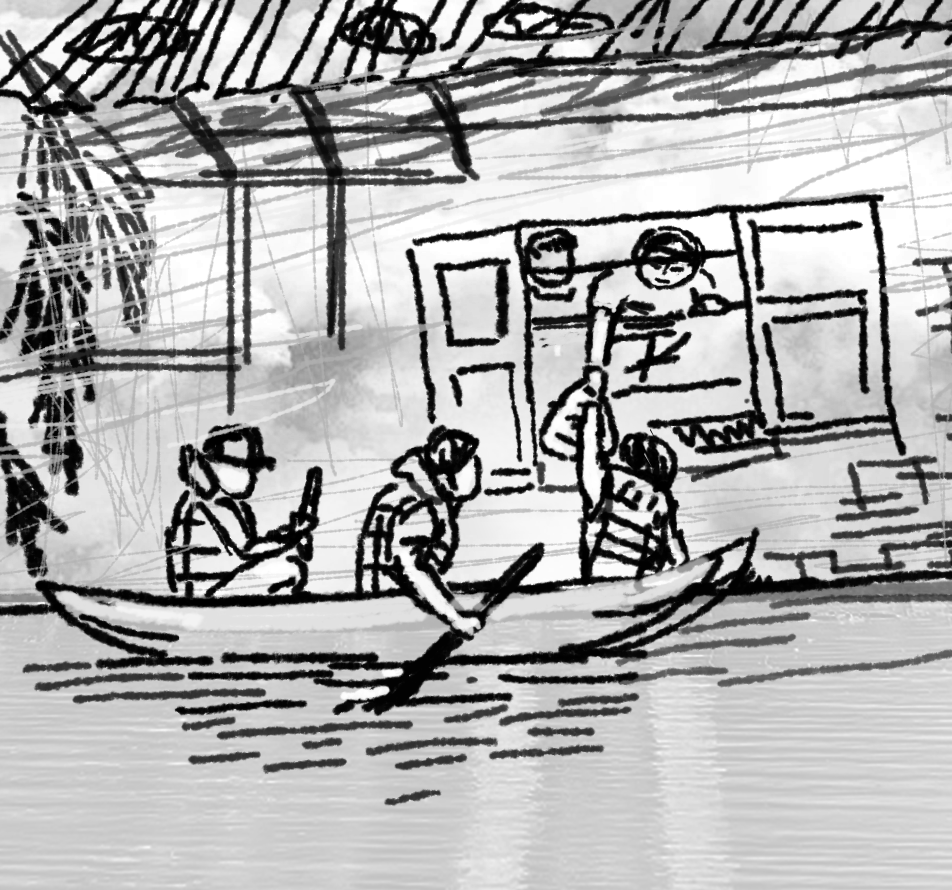 |
| Illustration: HH |
My days of escaping the flood began when the water reached the doorstep. Mom packed some rice, salt, a bottle of cooking oil, and some dry clothes into a plastic bag. Dad took the opportunity to arrange the furniture in the house, elevating some things as much as possible. Then we waded through the yard that was flooded up to our calves to my grandparents’ house, which was built higher and still dry. It was pitch dark, the rain hitting my face was stinging. I held Mom’s hand tightly, listening to the sound of Dad’s sandals splashing in front of me, like a guide in the flood.
Arriving at my grandmother’s house, I only saw the flickering oil lamp in the small kitchen. My grandmother was waiting in front of the porch, her thin figure still as strong as a bamboo tree at the end of the garden. She said: “This flood is big, stay here with me for sure.” Her voice seemed to soothe the worries in everyone’s heart. So the whole neighborhood took shelter in the highest house, turning into a big makeshift family during the days of rising water. I have never forgotten the scene of the whole neighborhood gathering in the damp house, both anxious and full of love. We children sat with our knees drawn up on the bamboo bed, listening to the adults tell stories of the old flood season, the story of the Huong River that once carried the roof of our house down the river. The stories did not scare the children, but instead brought us closer together. My grandmother often told in a warm voice: “This flood will recede, what remains is human love, my child.” At that time, I did not understand everything, but when I grew up, I realized that my grandmother was never wrong.
During the flood days, eating was also a challenge. My mother and grandmother cooked rice on a stove with a high tripod, heated by a few wet, pungent pieces of wood. I remember clearly the smell of burnt rice mixed with the smell of rain, a unique flavor that could not be found anywhere else. The food consisted only of sweet potato leaves, fish sauce, and a little dried fish, but everyone found it strangely delicious. Perhaps because in times of hardship, people know how to appreciate every bite of rice, every drop of water. At night, the wind blew stronger. Hearing the sound of rushing water outside, I hugged the thin blanket tightly, shivering from the cold. But beside me, my mother patted my shoulder, while my father sat by the window looking out. His eyes at that time no longer showed fatigue, but strange determination. People in the Central region are like that: Even if the water rises to their knees, to their waists, even if it washes away everything, they still calmly persevere and continue to live.
When the water began to recede, the sky seemed to brighten up a bit. The whole neighborhood rolled up their pants and waded back home. The road in front of the alley was covered with thick brown silt, the smell of mud permeated the air. Everyone started cleaning up: some bailed water, some wiped the floor, some put back the fallen walls. There was laughter mixed with lamentations, but the spirit of “helping with whatever you can” remained. The better-off family cooked a bowl of soup or a pot of porridge for the other. Meals after the flood were always delicious, not because they were full, but because they were shared.
Growing up, leaving my hometown to study and then to work, I realized that the days of fleeing the flood taught me many things: resilience, thrift, compassion and the belief that no matter how stormy the situation, people can always rely on each other to survive. As my grandmother used to say: "The floodwaters will eventually recede, but only human love remains."
Sometimes, in the middle of the bustling streets, I smell the first rain of the season and suddenly think of the flood nights of years past. I think of my parents wading in the dark, of my grandmother’s hand brushing my wet hair from my forehead, of the flickering oil lamp in the small kitchen. Everything comes back, so warm that just by closing my eyes, I feel like I’m back in my childhood, back in the flood days of my hometown.
Tuong Lai
Source: https://baoquangtri.vn/van-hoa/202511/nhung-ngay-chay-lut-b5f7ded/








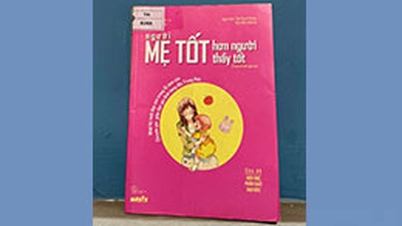








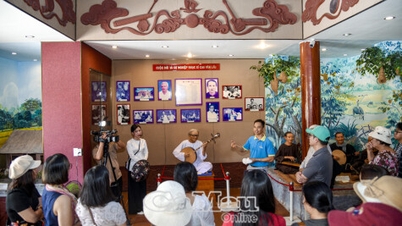





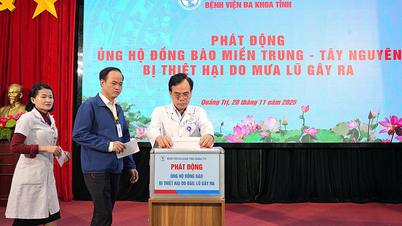
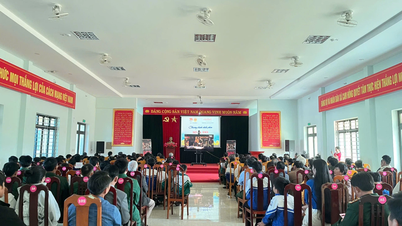

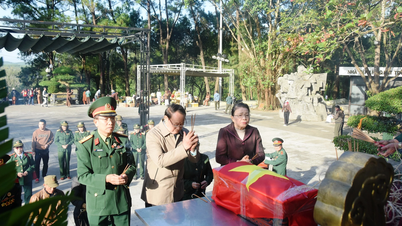
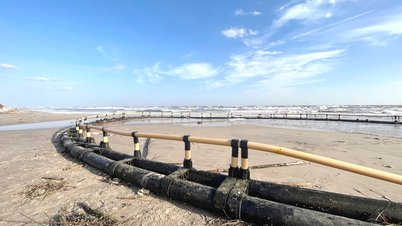
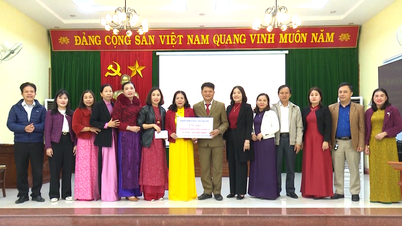




















































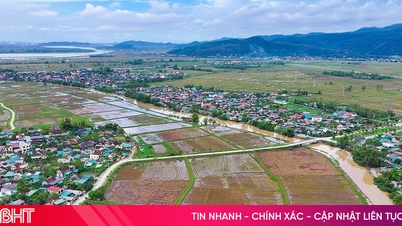





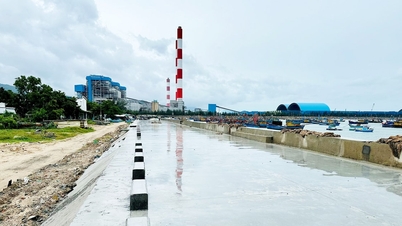











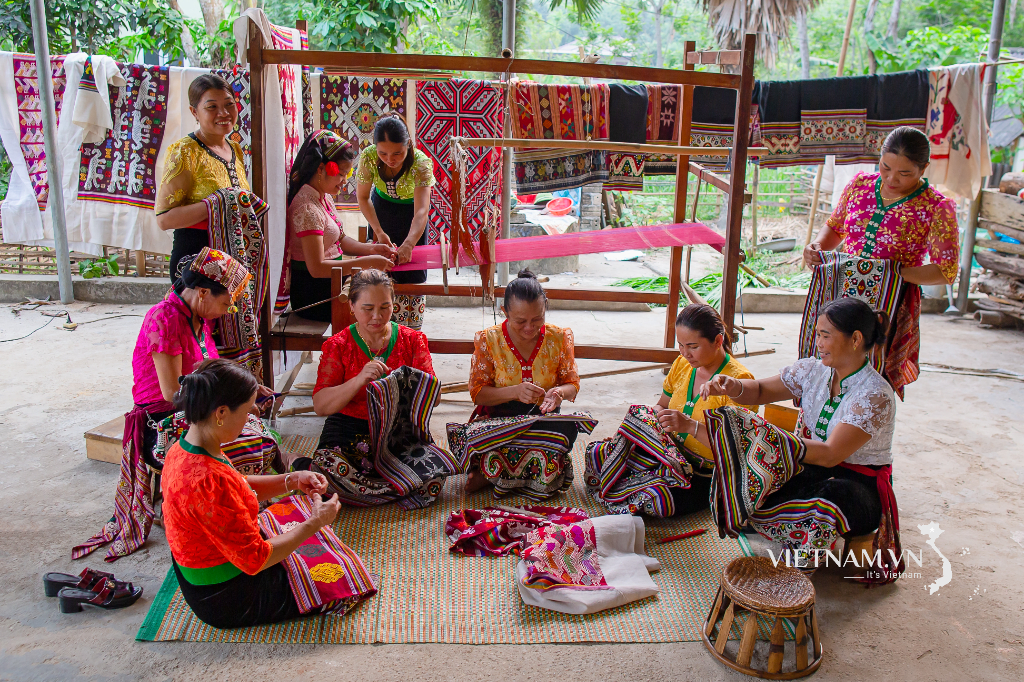


Comment (0)